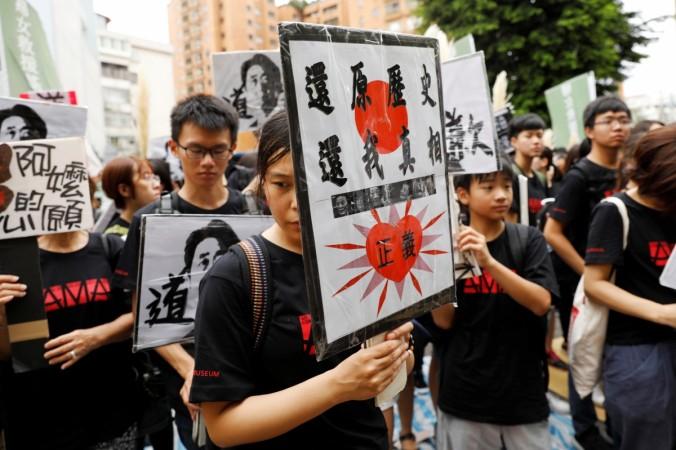
South Korea has been mounting pressure on Japan for over seven decades since 1945 to compensate for the latter's atrocities during the colonization era that preceded for about 35 years since 1910, including subjecting many women to be captured and made "Comfort Women" for its armed forces.
Though it has lingered for decades, a ruling by South Korea's Supreme Court last year asking Japanese companies to compensate the South Koreans who were conscripted as forced laborers during World War Two turned the trigger to worsen ties between the erstwhile trade partners. Alarming indeed that both have upped the ante, irrespective of the looming danger from North Korea.
Japan removed South Korea from its trade partners' White List, citing an erosion of trust and imposed tighter controls on exports of materials, especially some key components used in smartphone chips. In a tit-for-tat move, South Korea on Monday said it would remove Japan from its own "white list" of countries with fast-track trade status.
Apart from trade relations, last week, Seoul hinted that it would withdraw from the 2014 security pact with Tokyo on sharing military and strategic intelligence, especially against North Korea's nuclear and missile program. Under this pact, Japan used to share intelligence gathered from its satellites, radars, patrol aircraft and other high-tech systems on North Korea's missile tests and its submarines, while it received in turn, some key information from Seoul's military radars observing the border to detect North Korean launches, besides some information from spies and defectors from North Korea. However, both can live without the agreement as the US is still a member of some such trilateral pacts.
On his part, South Korean President Moon Jae-in said Japan's economic retaliation is unfair as it owes to its colonial-era abuses, but never relented as his government moved swiftly to invest about 7.8 trillion won ($6.48 billion) over the next seven years to procure the vital materials domestically.
"The government will pursue an elaborate and detailed strategy to more substantively develop our economy by taking Japan's economic retaliation as a chance to turn good out of evil," said Moon but the move is seen as distancing the role of US as a possible negotiator in the region.
Some Japanese experts quickly pointed out that it was a signal from an emboldened South Korea. "South Korea under the Moon administration appears to be not as enthusiastic about the trilateral cooperation with Japan and the U.S. as South Korea used to be in the past," Junya Nishino, a Korea expert at Keio University, recently said on a TV talk show, reports Reuters. "President Moon thinks the current framework is a legacy of the Cold War era and should be changed."
It remains to be an intriguing development that was never expected between the two trusted allies of the US in the Korean peninsula. Whether Trump offers his mediation and how far his offer will be accepted is another big question before the experts.















